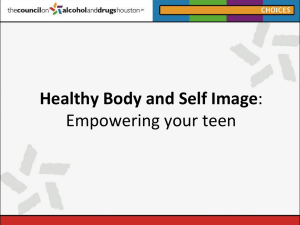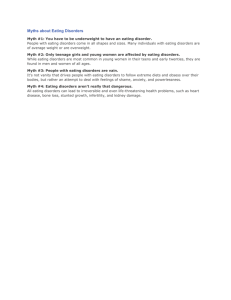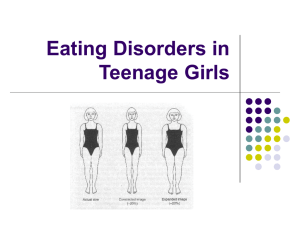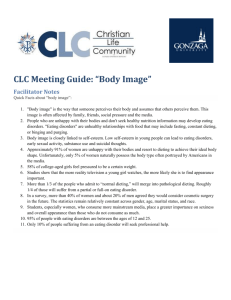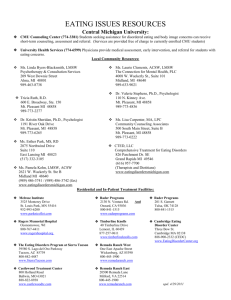ED Statistics with Citations - The Emily Program Foundation
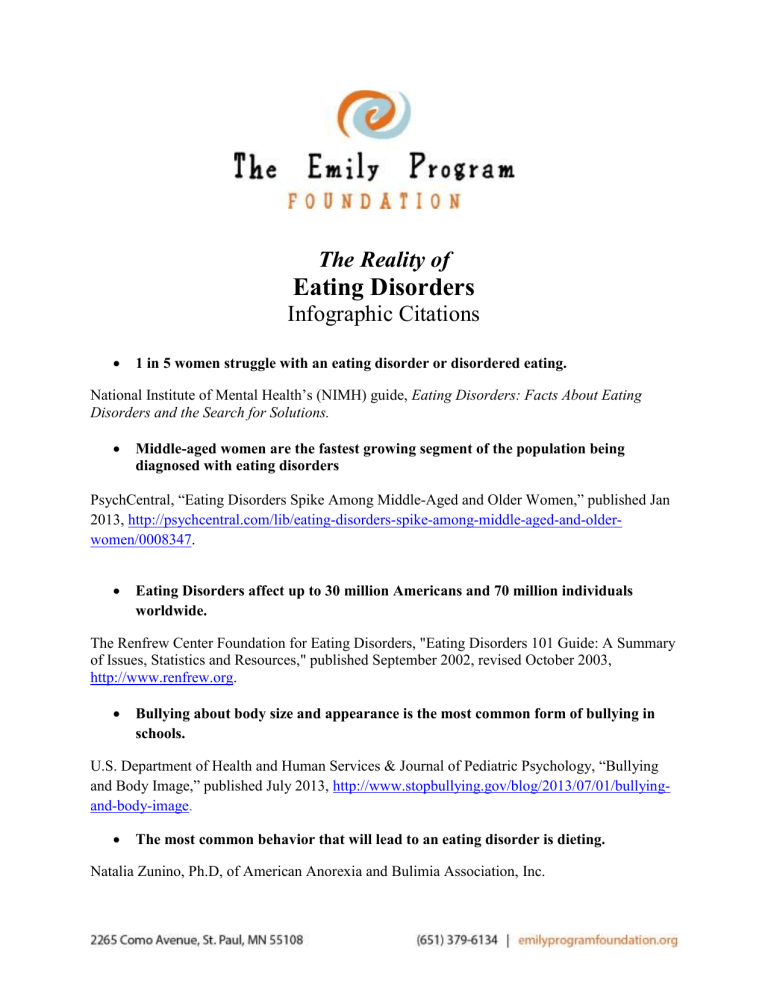
The Reality of
Eating Disorders
Infographic Citations
1 in 5 women struggle with an eating disorder or disordered eating.
National Institute of Mental Health’s (NIMH) guide,
Eating Disorders: Facts About Eating
Disorders and the Search for Solutions.
Middle-aged women are the fastest growing segment of the population being diagnosed with eating disorders
PsychCentral, “Eating Disorders Spike Among Middle-Aged and Older Women,” published Jan
2013, http://psychcentral.com/lib/eating-disorders-spike-among-middle-aged-and-olderwomen/0008347 .
Eating Disorders affect up to 30 million Americans and 70 million individuals worldwide.
The Renfrew Center Foundation for Eating Disorders, "Eating Disorders 101 Guide: A Summary of Issues, Statistics and Resources," published September 2002, revised October 2003, http://www.renfrew.org
.
Bullying about body size and appearance is the most common form of bullying in schools.
U.S. Department of Health and Human Services & Journal of Pediatric Psychology, “Bullying and Body Image,” published July 2013, http://www.stopbullying.gov/blog/2013/07/01/bullyingand-body-image .
The most common behavior that will lead to an eating disorder is dieting.
Natalia Zunino, Ph.D, of American Anorexia and Bulimia Association, Inc.
42% of 1 st -3 rd grade girls want to be thinner.
Collins M.E. (1991) Body figure and preferences among pre-adolescent children. International
Journal of Eating Disorders , 199-208.
Men constitute 40% of those exhibiting Binge Eating Disorder.
American Psychiatric Association. Diagnostic & Statistical Manual of Mental Disorders Fourth
Ed. (DSM-IV) . Washington DC, 1994.
Girls who diet frequently are 12 times as likely to binge as girls who don’t diet.
Neumark-Sztainer, D. (2005). I’m, Like, SO Fat!. New York: Guilford.
25% of American men and 45% of American women are on a diet on any given day.
Smolak, L. (1996). National Eating Disorders Association/Next Door Neighbors Puppet Guide
Book.
Americans spend over $40 billion on dieting and diet-related products each year.
Smolak, L. (1996). National Eating Disorders Association/Next Door Neighbors Puppet Guide
Book.
Four out of ten individuals have either personally experienced an eating disorder or know someone who has.
Global Market Insite Study @ NEDA, 2005.
81% of ten year olds are afraid of being fat.
Mellin, L., McNutt, S., Hu, Y., Schreiber, G.B., Crawford, P., & Obarzanek, E. (1991). A longitudinal study of the dietary practices of black and white girls 9 and 10 years old at enrollment: The NHLBI growth and health study. Journal of Adolescent Health , 20 (1), 23-37.
52% of Minnesota high school females fast or skip meals to control weight.
2007 Minnesota Student Survey Statewide Tables; Fall 2007. (2007). Retrieved from http://www.health.state.mn.us/divs/chs/mss/statewidetables/mss07statetablesfinal.pdf
.
20% of Minnesota high school males fast or skip meals to control weight.
2007 Minnesota Student Survey Statewide Tables; Fall 2007. (2007). Retrieved from http://www.health.state.mn.us/divs/chs/mss/statewidetables/mss07statetablesfinal.pdf
.



